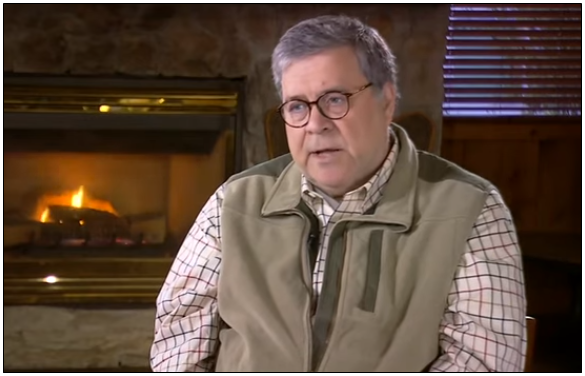“Well, I just think it has to be carefully looked at because the use of foreign intelligence capabilities and counterintelligence capabilities against an American political campaign to me is unprecedented and it’s a serious red line that’s been crossed.”
That was Attorney General William Barr in a CBS News interview with Jan Crawford published on May 31, outlining in broad terms what he is looking for in his review of Department of Justice and intelligence agency activities directed at the Trump campaign in 2016, including Foreign Intelligence Surveillance Act (FISA) warrants that gave the government access to campaign emails, phone calls, texts and other documents.
The core allegation agencies pursued, which turned out to be false, was that President Donald Trump was a Russian agent, and that his campaign had coordinated and conspired with Russia to hack the Democratic National Committee (DNC) and John Podesta emails and have them published on Wikileaks. The allegations originated in part with opposition research by former British spy Christopher Steele paid for by the DNC and Hillary Clinton campaign, which became the basis for the FISA warrants against the campaign that began in Oct. 2016.
Now we know from Special Counsel Robert Mueller’s report that there was no Trump conspiracy with Russia. The report stated, “[T]he investigation did not establish that members of the Trump Campaign conspired or coordinated with the Russian government in its election interference activities,” and “the evidence does not establish that the President was involved in an underlying crime related to Russian election interference.”
Whatever effect Russia might have had on the 2016 election and American politics, Barr said, the false allegations pursued by the Justice Department and intelligence agencies against Trump and his campaign also potentially interfered with our system. Barr told Crawford, “it’s just as dangerous to the continuation of self-government and our republican system, republic that we not allow government power, law enforcement or intelligence power, to play a role in politics, to intrude into politics, and affect elections.”
Barr added, “republics have fallen because of Praetorian Guard mentality where government officials get very arrogant, they identify the national interest with their own political preferences and they feel that anyone who has a different opinion, you know, is somehow an enemy of the state. And you know, there is that tendency that they know better and that, you know, they’re there to protect as guardians of the people. That can easily translate into essentially supervening the will of the majority and getting your own way as a government official.”
Crawford asked if that’s what happened in 2016, to which Barr replied, “There were counterintelligence activities undertaken against the Trump Campaign. And I’m not saying there was not a basis for it, that it was legitimate, but I want to see what that basis was and make sure it was legitimate.”
To assist in that effort, on May 23, President Trump in a memorandum required intelligence agencies to cooperate with Barr: “The Attorney General is currently conducting a review of intelligence activities relating to the campaigns in the 2016 Presidential election and certain related matters. The heads of elements of the intelligence community… and the heads of each department or agency that includes an element of the intelligence community shall promptly provide such assistance and information as the Attorney General may request in connection with that review.”
And Trump delegated his declassification authority to Barr, limited to this particular review, stating, “the Attorney General may, by applying the standard set forth in either section 3.1(a) or section 3.1(d) of Executive Order 13526, declassify, downgrade, or direct the declassification or downgrading of information or intelligence that relates to the Attorney General’s review referred to in section 1 of this memorandum.”
For his part, Barr told Crawford it was his responsibility to ensure that these surveillance powers are exercised properly: “[O]ne of the key responsibilities of the Attorney General, core responsibilities of the Attorney General is to make sure that government power is not abused and that the right of Americans are not transgressed by abusive government power. That’s the responsibility of the Attorney General.”
It’s about time. The American people are fortunate to have Barr as Attorney General, who appears to be up to the task of taking on the entrenched Washington, D.C. establishment, with his single-minded, decisive approach to rooting out any potential abuses that occurred with the government spying on the opposition party in an election year. Barr is right, that most certainly was an unprecedented red line that was crossed. Now, the truth is coming out. It’s only a matter of time. Stay tuned.
Robert Romano is the Vice President of Public Policy at Americans for Limited Government.







